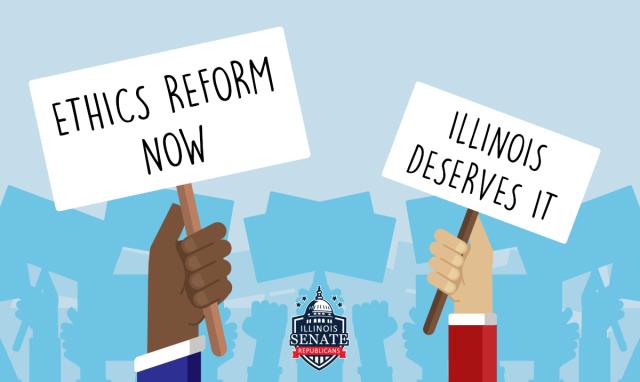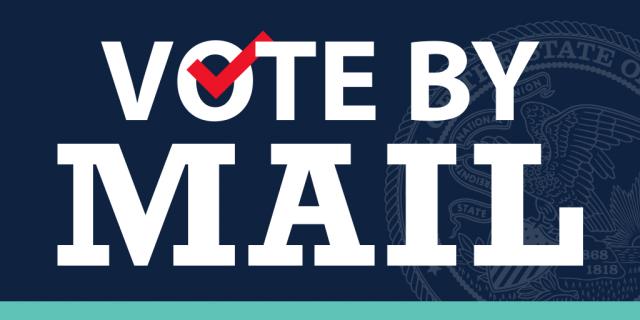Small-business grants still available
  
Millions of dollars are still available through the Business Interruption Grant (BIG) program for businesses who have been financially impacted by COVID-19 closures.
The Business Interruption Grant (BIG) program is a $636 million program that provides economic relief for small businesses hit hardest by COVID-19. BIG leverages federal funding provided by the CARES Act to help offset COVID-19 related losses for Illinois small businesses. Funding may be used to help businesses with working capital expenses, including payroll costs; rent; utilities; and other operational costs.
The application for the second round of Business Interruption Grants (BIG) is live on the DCEO website.
In this round, nearly all businesses and non-profits with an annual revenue under $20 million are eligible to apply for the $220 million available. While nearly all are eligible, certain types of businesses will take priority or have set asides in funding:
- Heavily Impacted Industries ($60 million): businesses that have been nearly shut down such as event spaces, performing arts venues, museums, movie theaters, and other indoor and high contact recreational facilities.
- Priority Businesses apart from the industries above. These are businesses that:
- Were directly affected by regional mitigations implemented by the state or local governments (so far in Region 4 and 7)
- Did not receive PPP or other forms of emergency aid
- Are independently owned retail, tourism or hospitality-related, and other hard-hit industries.
- Have less than $5 million in annual revenue
- Experienced revenue losses exceeding 50% since March
While businesses in every corner of the state will be eligible to apply, two geographic factors will get priority:
- Disproportionately Impacted Areas ($70 million), the map can be found on the DCEO website here.
- Downstate Businesses ($100 million), which means those not located in Cook, Lake, DuPage, Kane, and Will counties.
- The application is live here. The overview page can help answer many questions. Detailed eligibility criteria can be found here.

Recent indictments underscore the need for anti-corruption reform this veto session

In a time when several Illinois Democrat legislators are making headlines for corruption charges, Illinois Senate Republicans have introduced legislation to hold elected officials accountable.
Measures include:
- Prohibiting legislators from lobbying other branches or units of government for compensation.
- Implement a revolving door prohibition that would make legislators wait one year, or until the end of their elected term to register as a lobbyist.
- Prohibiting the use of campaign funds once a legislator leaves office if lobbying or appointed to a position confirmed by the Senate.
- Updating the Statement of Economic Interest to require enhanced disclosure of potential conflicts of interest.
Ahead of veto session, Senate Republicans urge Democrats leaders to take action on these measures. If you agree, sign my petition calling on anti-corruption reform at http://senatorjiltracy.com/sign-the-petition.

Voting options

Voting by mail is an option for voters to cast their ballot prior to Election Day. Voters can request a vote-by-mail ballot through the mail or in person.
The first day to file an application for a vote-by-mail ballot with the Election Authority was June 16, 2020.
All requests by mail must be received by the Election Authority by October 29, 2020.
All in-person early voting requests must be made by November 2, 2020.
Additional provisions and requirements apply to Military and Overseas Citizens.
VOTING BY MAIL
WHO MAY APPLY FOR A VOTE-BY-MAIL BALLOT?
- Any qualified elector of the state of Illinois who is properly registered to vote.
- Registered or non-registered members of the U.S. Armed Forces while on active duty, members of the Merchant Marines, and/or U.S. government employees serving outside the U.S., as well as their spouse and dependent(s) who expect to be absent from their county of residence on Election Day.
- Registered and non-registered citizens of the U.S. temporarily out of the country, and their spouse and dependent(s) of voting age when residing with or accompanying them who maintain a precinct residence in Illinois.
- Any State or federal employee (and their spouse) who had a voting residence in the precinct at the time they entered employment, but who now reside elsewhere due to State or federal employment, may retain their voting rights in that precinct.
*Dependent children or military members who have never resided in Illinois are eligible to vote, and may also vote by mail.
FOR A VOTE-BY-MAIL BALLOT:
Voter must obtain a vote-by-mail application from their election authority, in-person or online, to request a vote-by-mail ballot. Upon receiving the application, the voter completes, signs, and then returns it to the election authority.
VOTE-BY-MAIL APPLICATION MUST INCLUDE
- Name
- Home address
- Address where the voter would like application to be mailed
- Party Affiliation for Primary Election
- Signature
- Any vote-by-mail ballot must be placed into the certification envelope provided. The certification on the envelope must be completed, signed, and the envelope sealed. Mailed ballots must be postmarked no later than Election Day, and must be received within 14 days of the election. All vote-by-mail ballots are processed centrally.
WHEN TO APPLY?
Vote-by-mail applications can be submitted 90 days through five days prior to the election.
If submitted by mail outside the U.S. an application must be made:
- Not less than 30 days prior to the election to receive full ballot or;
- Less than 30 days prior to the election to receive a federal ballot only
THOSE WHO REQUESTED TO VOTE BY MAIL, BUT TURN UP AT THE POLLS ON ELECTION DAY CAN VOTE IF:
- Voter submits to election judges their vote-by-mail ballot, or a portion of the ballot for cancellation.
- Voter fills out affidavit stating that they never received the vote-by-mail ballot.
- Voter fills out affidavit stating they completed and returned the vote-by-mail ballot and the election authority did not receive it.
- Note: If the voter admits receiving a vote-by-mail ballot but did not return it to the election authority, they would only be eligible to vote provisionally.
IMPORTANT FACTS
- A voter may authorize any person to return their ballot to the election authority, as long as the voter has signed the affidavit on the ballot envelope affirming that authorization was given to deliver the ballot.
- Voting by mail includes the same obligations as those who vote in the polling place on Election Day.
- The affidavits on the application and the ballot envelope must be signed. These affidavits attest to the accuracy of the information provided on the application. The affidavit on the envelope also attests to the fact that the voter is voting their own ballot in secret.
- If the voter receives assistance in voting their ballot, the name and address of the individual providing the assistance must be placed on the ballot certification envelope. Remember that a candidate is NOT allowed to assist a voter unless the candidate is a spouse, parent, child, or sibling of that voter.
- If application is made electronically and the applicant has properly filled it out, a signature is not required.
- Any person may produce, reproduce, distribute, or return to an election authority the application for a vote-by-mail ballot.
VOTING BY MAIL BEGINS:
Military and overseas: 45 days prior to the election
Everyone else: 40 days prior to each election
Source: Illinois State Board of Elections
IN-PERSON EARLY VOTING:
Early voting is open now!
Registered voters may cast a ballot prior to Election Day without having to provide a reason for wanting to vote early. This ballot is cast by personal appearance at the office of the election authority or at an Early Voting Center.
A major reason for early voting is to encourage greater participation in the election process. People who travel for business, work long hours, or are otherwise inconvenienced by the hours the polls are open on Election Day, may find it easier to vote early.
IMPORTANT FACTS:
- A qualified voter to whom a vote-by-mail ballot was issued may vote early if they submit that vote-by-mail ballot for cancellation to the judges or election official conducting early voting. If the voter is unable to submit the vote-by-mail ballot, it shall be sufficient for the voter to submit to the judges or election official (i) a portion of the vote-by-mail ballot if the vote-by-mail ballot was torn or mutilated or (ii) an affidavit executed before the judges or election official specifying that the voter never received a vote-by-mail ballot or the voter completed and returned a vote-by-mail ballot and was informed that the election authority did not receive that vote-by-mail ballot.
- The votes cast during the early voting period will not be counted until after the polls close on Election Day.
- Electioneering is prohibited at the early voting site and a campaign-free zone will be established like it is at the polling place on Election Day.

|